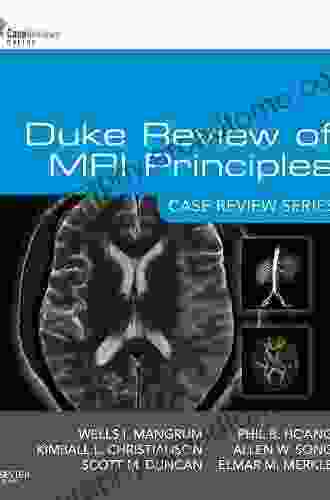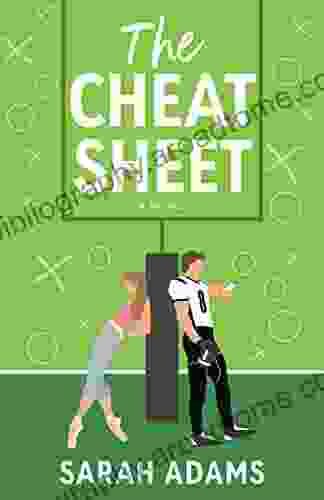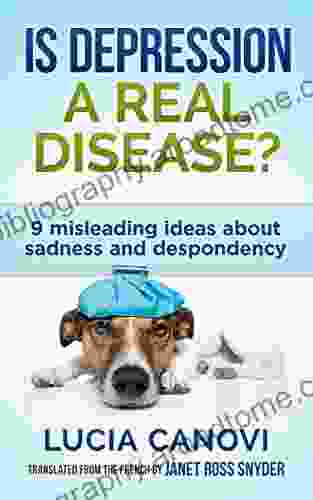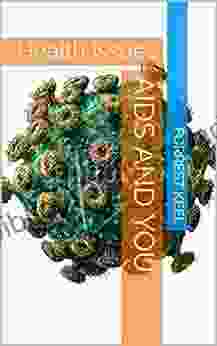Is Depression a Real Disease? Uncovering the Truth and Dispelling the Myths

Depression is a prevalent condition that affects millions worldwide. Despite its widespread occurrence, there is still a lingering stigma associated with it, often leading to misconceptions and skepticism about its validity as a genuine disease. This article aims to shed light on the complex and multifaceted nature of depression, examining the scientific evidence and dispelling common myths to provide a comprehensive understanding of this condition.
Depression is a mental health disFree Download characterized by persistent sadness, loss of interest or pleasure, and a range of other symptoms that significantly impair daily functioning. According to the Diagnostic and Statistical Manual of Mental DisFree Downloads (DSM-5),the diagnostic criteria for depression include experiencing at least five of the following symptoms for a period of at least two weeks:
- Depressed mood most of the day, nearly every day
- Markedly diminished interest or pleasure in activities
- Significant weight loss or gain when not dieting or a change of more than 5% in body weight in a month
- Insomnia or hypersomnia nearly every day
- Psychomotor agitation or retardation nearly every day (observable by others)
- Fatigue or loss of energy nearly every day
- Feelings of worthlessness or excessive guilt nearly every day
- Diminished ability to think or concentrate, or indecisiveness, nearly every day
- Recurrent thoughts of death or suicidal ideation
Depression is typically classified into two major subtypes:
5 out of 5
| Language | : | English |
| File size | : | 1498 KB |
| Text-to-Speech | : | Enabled |
| Screen Reader | : | Supported |
| Enhanced typesetting | : | Enabled |
| Word Wise | : | Enabled |
| Print length | : | 72 pages |
| Lending | : | Enabled |
- Major depressive disFree Download: The most severe form of depression, characterized by intense symptoms that significantly interfere with daily life
- Persistent depressive disFree Download (dysthymia): A chronic form of depression that lasts for at least two years, with less severe but persistent symptoms
Misconceptions about depression are widespread, contributing to the stigma and lack of understanding. Here are some common myths debunked:
Myth 1: Depression is just a sign of weakness or a character flaw.Truth: Depression is a complex medical condition with biological, psychological, and social causes. It is not a sign of weakness or a lack of willpower.
Myth 2: Depression is something that can be snapped out of or overcome with positive thinking.Truth: Depression is a serious condition that requires professional treatment. Positive thinking alone cannot alleviate the symptoms.
Myth 3: Depression is a temporary condition that will go away on its own.Truth: While some episodes of depression may be short-lived, for many people, it is a chronic condition that requires ongoing management.
Myth 4: People with depression are always sad or crying.Truth: Depression can manifest in a variety of ways, with symptoms such as irritability, loss of energy, or changes in appetite, and not all individuals may exhibit sadness or crying.
Myth 5: Depression is a normal part of life or aging.Truth: While some people may experience mild mood fluctuations during different life stages, persistent and severe symptoms of depression warrant professional evaluation.
Overwhelming scientific evidence supports the validity of depression as a genuine and treatable medical condition.
Neurochemical Basis:Research has identified imbalances in neurotransmitters, such as serotonin, norepinephrine, and dopamine, in individuals with depression. These imbalances contribute to alterations in brain function and affect mood regulation.
Genetic Factors:Studies have shown that depression has a strong genetic component. Family history, genetic predisposition, and specific gene variations can increase the risk of developing the disFree Download.
Structural and Functional Brain Changes:Neuroimaging studies have revealed structural and functional changes in the brains of people with depression, including reduced volume in certain brain regions associated with mood regulation, memory, and cognitive function.
Diagnostic Criteria and Treatment Efficacy:The diagnostic criteria for depression, as outlined in the DSM-5, have been developed through rigorous scientific research and clinical validation. Furthermore, numerous evidence-based treatments, such as psychotherapy, medication, and brain stimulation techniques, have demonstrated effectiveness in reducing symptoms and improving outcomes.
Various treatment options are available for depression, tailored to the individual's needs and circumstances.
Psychotherapy:Cognitive-behavioral therapy (CBT),interpersonal therapy (IPT),and mindfulness-based therapies are common approaches to psychotherapy that help individuals understand and change negative thought patterns, improve coping mechanisms, and develop healthier behaviors.
Medication:Antidepressants, including selective serotonin reuptake inhibitors (SSRIs),serotonin-norepinephrine reuptake inhibitors (SNRIs),and tricyclic antidepressants (TCAs),can help regulate neurotransmitter levels and alleviate symptoms of depression.
Brain Stimulation Therapies:In some cases, brain stimulation techniques such as transcranial magnetic stimulation (TMS) or electroconvulsive therapy (ECT) may be used to improve brain function and alleviate symptoms.
Lifestyle Changes:Healthy lifestyle habits, including regular exercise, a balanced diet, and adequate sleep, can support overall well-being and complement professional treatment.
Depression is a real and treatable disease that requires professional attention and understanding. By dispelling common myths and highlighting the scientific evidence, this article aims to promote awareness and reduce the stigma associated with this condition. It is crucial to recognize the complexities of depression and encourage individuals to seek help if they suspect they or someone they know may be struggling with it. Early diagnosis and appropriate treatment can significantly improve outcomes and enhance the quality of life for those affected by depression.
5 out of 5
| Language | : | English |
| File size | : | 1498 KB |
| Text-to-Speech | : | Enabled |
| Screen Reader | : | Supported |
| Enhanced typesetting | : | Enabled |
| Word Wise | : | Enabled |
| Print length | : | 72 pages |
| Lending | : | Enabled |
Do you want to contribute by writing guest posts on this blog?
Please contact us and send us a resume of previous articles that you have written.
 Book
Book Novel
Novel Page
Page Chapter
Chapter Text
Text Story
Story Genre
Genre Reader
Reader Library
Library Paperback
Paperback E-book
E-book Magazine
Magazine Newspaper
Newspaper Paragraph
Paragraph Sentence
Sentence Bookmark
Bookmark Shelf
Shelf Glossary
Glossary Bibliography
Bibliography Foreword
Foreword Preface
Preface Synopsis
Synopsis Annotation
Annotation Footnote
Footnote Manuscript
Manuscript Scroll
Scroll Codex
Codex Tome
Tome Bestseller
Bestseller Classics
Classics Library card
Library card Narrative
Narrative Biography
Biography Autobiography
Autobiography Memoir
Memoir Reference
Reference Encyclopedia
Encyclopedia Fiona Creed
Fiona Creed Eric Kaufmann
Eric Kaufmann Faye Hill
Faye Hill Jenny Ruhl
Jenny Ruhl Enrique Zaldivar
Enrique Zaldivar F Hadland Davis
F Hadland Davis Lisa London
Lisa London Ennio Pannese
Ennio Pannese Frances O Roark Dowell
Frances O Roark Dowell Eric Holthaus
Eric Holthaus Rachel C King
Rachel C King Eluned Summers Bremner
Eluned Summers Bremner Paul Robeson
Paul Robeson Susan Hollister
Susan Hollister Erik Hollnagel
Erik Hollnagel Sarah Durham Wilson
Sarah Durham Wilson Sergei Bertensson
Sergei Bertensson Eric Toensmeier
Eric Toensmeier Emile Hiesiger
Emile Hiesiger Erin Boyle
Erin Boyle
Light bulbAdvertise smarter! Our strategic ad space ensures maximum exposure. Reserve your spot today!
 Terry BellFollow ·9.2k
Terry BellFollow ·9.2k Oscar BellFollow ·4.8k
Oscar BellFollow ·4.8k Isaac AsimovFollow ·16.4k
Isaac AsimovFollow ·16.4k Marc FosterFollow ·7.1k
Marc FosterFollow ·7.1k Guy PowellFollow ·3.5k
Guy PowellFollow ·3.5k Austin FordFollow ·17k
Austin FordFollow ·17k Bret MitchellFollow ·9.9k
Bret MitchellFollow ·9.9k Fernando BellFollow ·6.1k
Fernando BellFollow ·6.1k

 Troy Simmons
Troy SimmonsStories From The Life Of Baha: A Must-Read For Spiritual...
Discover the Inspiring Teachings and Enriching...

 Wesley Reed
Wesley ReedDuke Review of MRI Principles: Case Review - Your Gateway...
Unveiling the Essence...

 Ralph Waldo Emerson
Ralph Waldo EmersonThe Big Book of NFTs: Your Ultimate Guide to the Digital...
In the rapidly evolving world of digital...

 Jason Hayes
Jason HayesUnveiling the Labyrinth: The Cheat Sheet Novel and its...
In the realm...
5 out of 5
| Language | : | English |
| File size | : | 1498 KB |
| Text-to-Speech | : | Enabled |
| Screen Reader | : | Supported |
| Enhanced typesetting | : | Enabled |
| Word Wise | : | Enabled |
| Print length | : | 72 pages |
| Lending | : | Enabled |
















